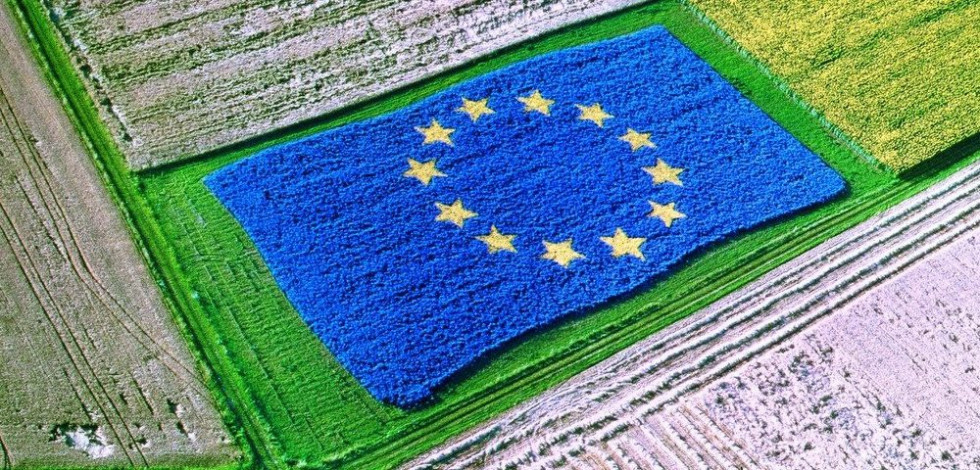European Commission publishes draft rules on state aid to agriculture, forestry and fisheries for 2023–2027
Following the adoption of the Common Agricultural Policy (CAP) in December 2021, the European Commission has drafted proposals for acts on state aid in agriculture, forestry and fisheries for the 2023–2027 programming period. The purpose of the proposed amendments is to align the existing state aid rules in these economic activities with the current strategic priority tasks of the EU, in particular with the reformed CAP, the Common Fisheries Policy and the European Green Deal.
The amendments cover the following sets of state aid rules from 2014 that currently apply to the agriculture, forestry and fisheries sectors and cease to apply at the end of 2022:
- EU guidelines for state aid in the agricultural and forestry sectors and in rural areas;
- EU State Aid Block Exemption Regulation relating to the agriculture and forestry sectors and to rural areas;
- EU guidelines for the examination of state aid to the fishery and aquaculture sector;
- EU Fishery and Aquaculture Block Exemption Regulation and
- Fishery and Aquaculture de minimis Regulation.
On the basis of the assessment of the existing rules, the European Commission considers that they function well and are generally fit for their set purpose. The rules actually largely meet the needs of the sectors concerned and at the same time contribute to the broader EU policy objectives, such as environmental protection, plant and animal health and, more generally, public health. At the same time, the assessment has shown that the existing rules require some targeted adjustments, including clarification of certain concepts, further rationalisation and simplification, and adjustments through which the rules would further reflect market and technological developments and current strategic priorities of the EU, in particular with the European Green Deal, the "Farm to Fork" strategy and the Biodiversity Strategy. Moreover, the rules need to be adjusted to enable EU Member States to rapidly implement the reformed CAP and the new European Maritime, Fisheries and Aquaculture Fund.
Key innovations in the European Commission's proposals
In its proposal for new guidelines for state aid in the agricultural and forestry sectors the Commission proposes:
- to consider EU Member States' actions carried out as part of their CAP Strategic Plans to be in line with EU state aid rules;
- new categories of aid that can be approved in accordance with the guidelines, such as aid for the prevention, control and eradication of infestation by invasive alien species and emerging diseases to protect plant, animal and public health;
- more incentives for forest-management measures which are favourable for the environment and the climate (so-called forest-environment and climate services), by increasing the maximum aid intensity to 120% of the eligible costs for biodiversity, climate, water or soil related services, and carbon farming schemes.
- to align aid intensity for a measure to fall within the scope of the Agricultural Block Exemption Regulation with the intensity provided by the CAP Strategic Plans under the reformed CAP, e.g. for investment aid the basic aid intensity would now amount to a maximum of 65% of eligible costs, while for aid related to the payment of insurance premiums to a maximum of 70%;
- to introduce new categories of aid measures to be block exempted from the obligation to notification to the European Commission, e.g. aid to make good the damages caused by protected species of animals and aid to compensate for the additional costs incurred when agricultural land is situated in Natura 2000 areas.
In the proposal of new guidelines for the examination of state aid in the fishery and aquaculture sector the Commission proposes:
- to introduce new aid categories to be assessed by the Commission under the guidelines, notably aid for the prevention, control and eradication of infestation by invasive alien species and emerging diseases and aid to compensate for damages caused by protected species of animals;
- to clarify and streamline the rules in a number of areas, such as those relating to aid for the renewal of the fishing fleet in outermost regions.
The Commission proposes that new categories of aid be introduced in the new State Aid Fishery Block Exemption Regulation, in particular aid to compensate for damages caused by protected species of animals and aid to compensate damages caused by certain adverse weather conditions.
In the proposal for the Fishery de minimis Regulation the Commission proposes an update of the maximum cumulative amounts of de minimis aid that EU Member States can grant to beneficiaries over a three-year period.
Opportunity to comment on the proposals and further steps
Interested parties can submit their comments on these proposals until 13 March 2022. On the website of the European Commission you can find the following about public consultations:
- more detailed information and guidance on proposals relating to agriculture and forestry,
- more detailed information and guidance on proposals relating to fisheries and aquaculture.
Interested parties who wish to submit their comments to the European Commission are invited to send them to the e-mail address of the Ministry of Agriculture, Forestry and Food: gp.mkgp@gov.si.
The European Commission will organise two meetings with the EU Member States on the proposals concerned, the first one taking place towards the end of the consultation period and the second one after the proposals are revised based on input received during the public consultation.
The new rules are planned to be adopted by the end of 2022.


